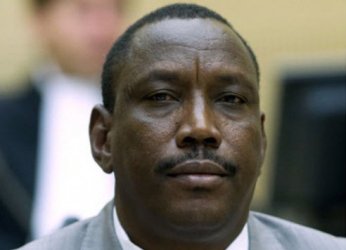Sudan health minister calls for medicines to be exempt from US sanctions
December 9, 2013 (KHARTOUM) – The Sudanese minister of health, Bahar Idris Abu Garda, has called for a campaign to exempt pharmaceutical products from sanctions, which have been blamed for a lack of lifesaving medicines in the local market.

He further asked them to allow the medical supplies corporation to open bank accounts with commercial banks that are not included in the US sanctions in order to make transfers to regional and international banks which currently don’t accept transfers from the Central Bank of Sudan (CBoS).
Late last month, Sudan’s Drug Importers Chamber (DIC) revealed that 31 foreign pharmaceutical companies were refusing to deal with Sudan until outstanding credits amounting to $90 million are repaid, accusing the CBoS of failing to provide the foreign exchange.
Washington imposed economic and trade sanctions on Sudan in 1997 in response to its alleged connection to terror networks and human rights abuses. In 2007, it strengthened the embargo, citing abuses in Darfur, which it labelled as genocide.
Garda said that patients who suffer from renal failure in Sudan can only undergo dialysis treatment twice a week and not three times as is medically recommended due to a lack of funds.
He pointed out that the budget only allows 4,375,000 SDG monthly for dialysis, although the three standard treatments requires 6,562,500 SDG monthly.
Garda called for debts owed by government bodies to the medical supplies corporation since 2009 to be settled, suggesting that the CBoS should cover the deficit in foreign exchange resulting from the allocation of only 10% from non-oil exports revenues for drugs imports.
The 10% allocated from non-oil exports revenues for the importation of drugs provides only $100 million, while the actual medical needs amount to $300 million.
The minister said that 3,000 medical students graduate annually from the 34 faculties of medicine in the country, pointing out that 3,000 doctors leave the country every year.
He attributed the high migration rates to the lack of incentives, saying that foreigners and the wealthy benefit from the free medical services.
Legislators have criticised the minister’s statements on the availability of medical care in Sudan, saying that patients who are admitted to public hospitals are discharged without being treated and wealthy people are seeking treatment abroad and those who don’t have money simply die.
Several MPs have also emphasised the lack of adequate medical services in rural areas, with some patients forced to walk up to 100kms in search of treatment, adding that that states also suffer from a lack of obstetricians and paediatricians.
MPs also questioned the high numbers of medical graduates, as well as medical errors attributed to poor training.
Garda retained his position following the recent cabinet reshuffle, owing to his links to the former rebel Liberation and Justice Movement (JEM), which signed a peace agreement with the Sudanese government in Doha in July 2011.
(ST)
